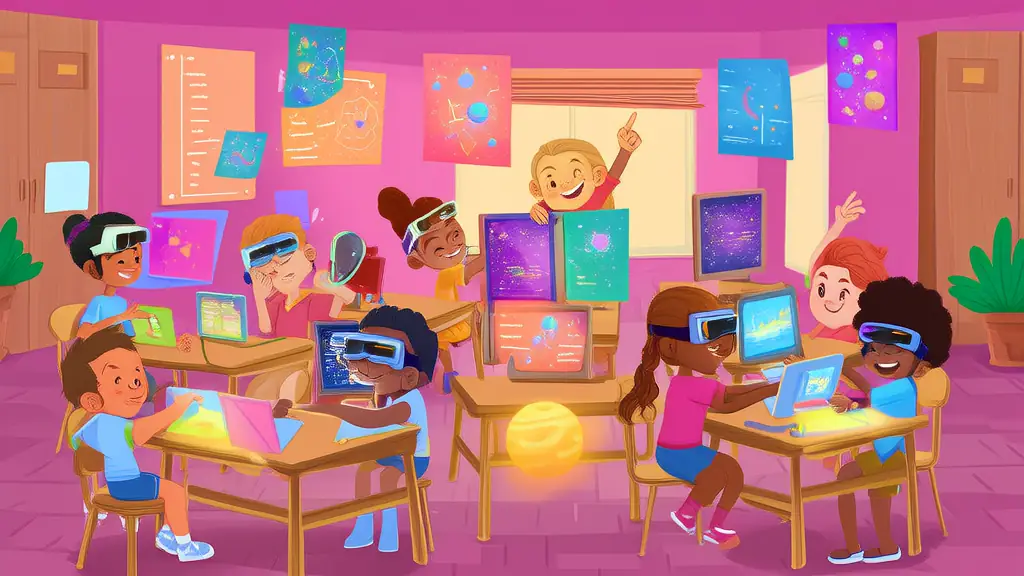
Empowering the Future: Navigating K-12 Education in 2025
Welcome to the future of education! As we step into a new era, the landscape of K-12 education is evolving rapidly, driven by innovative teaching methodologies, cutting-edge technology, and a deeper understanding of child development. This blog post aims to provide valuable insights for both parents and educators, highlighting the latest trends, research, and practical tips that can help shape the educational journey of our young learners.
The Power of Personalized Learning
One of the most significant shifts in K-12 education is the move towards personalized learning. This approach recognizes that every student is unique, with different strengths, weaknesses, and learning styles. By tailoring instruction to meet individual needs, educators can foster a more engaging and effective learning environment.
Effectiveness: Research from the Bill & Melinda Gates Foundation shows that personalized learning can lead to higher academic achievement, improved student engagement, and better preparation for college and career. For example, schools like Summit Public Schools in California have seen remarkable success with their personalized learning platform, which allows students to set and track their own goals, leading to a 98% graduation rate.
Actionable Advice: Teachers can start by using formative assessments to understand each student's current level and tailor lessons accordingly. Parents can support this by encouraging their children to set personal learning goals and providing resources that align with their interests and strengths.
Child Development Insights and Research
Recent advancements in neuroscience and psychology have provided us with a wealth of knowledge about how children learn and develop. Understanding these insights can help educators and parents create more supportive and effective learning environments.
Research Highlights: Studies have shown that play-based learning is crucial for cognitive, social, and emotional development, especially in early childhood. Additionally, the importance of executive function skills—such as working memory, self-control, and flexible thinking—cannot be overstated. These skills are foundational for academic and life success.
Actionable Advice: Incorporate play-based activities into the curriculum, especially for younger students. For older students, focus on developing executive function skills through activities that require planning, problem-solving, and self-regulation. Parents can also support this by creating a structured home environment that encourages responsibility and independence.
Educational Technology Trends
Technology has become an integral part of modern education, offering new tools and platforms that enhance learning experiences. From virtual reality (VR) to artificial intelligence (AI), the possibilities are endless.
Trends: VR and augmented reality (AR) are being used to create immersive learning experiences, making complex concepts more tangible and engaging. AI-powered adaptive learning platforms, such as DreamBox and Carnegie Learning, use data to provide real-time feedback and adjust the difficulty of tasks to match each student's level.
Actionable Advice: Educators should explore and integrate these technologies into their classrooms, ensuring they align with learning objectives. Parents can stay informed about the tech tools their children are using and engage in discussions about digital literacy and responsible technology use.
Practical Tips for Parents and Teachers
Collaboration between parents and teachers is key to a student's success. Here are some practical tips to foster a strong partnership:
- Communication: Regular and open communication is essential. Use tools like email, messaging apps, and parent-teacher conferences to stay connected.
- Homework Support: Provide a quiet, organized space for homework and be available to help, but avoid doing the work for your child. Encourage them to ask questions and seek help when needed.
- Positive Reinforcement: Celebrate successes and provide constructive feedback. Focus on effort and progress rather than just grades.
- Extracurricular Activities: Encourage participation in extracurricular activities that align with your child's interests. These activities can build confidence, social skills, and a sense of community.
Conclusion: A Call to Action
The future of K-12 education is bright, filled with opportunities for innovation and growth. By embracing personalized learning, staying informed about child development, leveraging educational technology, and fostering strong partnerships between parents and teachers, we can ensure that our children are well-prepared for the challenges and opportunities of the 21st century.
Let's work together to create a supportive, engaging, and effective learning environment for our young learners. The future is in our hands, and it starts with the decisions we make today.
Stay curious, stay engaged, and let's continue to empower the next generation of leaders and thinkers.